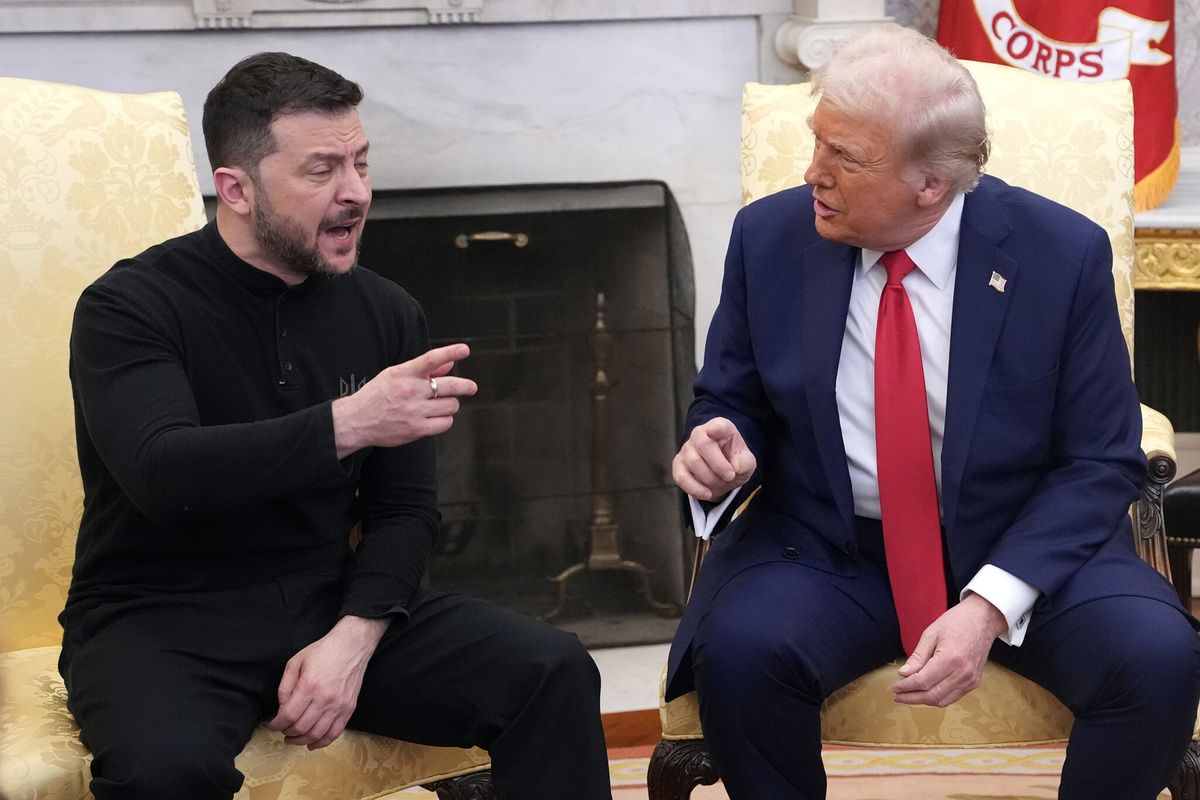Throughout American electoral history, Saudi Arabia’s ruling Al Saud family, particularly the kings, has refrained from commenting on U.S. presidential candidates. But if they could now or even cast a vote, for whom would it be?
Long-serving former Saudi Foreign Minister Saud Al-Faisal once referred to U.S. presidential campaigns as “the funny season.” He long ago had learned to discount the sometimes extreme statements of candidates made in the heat of electoral battle. Experience had taught the Saudis that once in office, American presidents inevitably hewed toward the center and, more to their interests, sought to maintain a relationship seen by both sides as mutually beneficial and in their strategic interests.
With Donald Trump, however, the Saudis are at least mystified if not downright fearful. His statements on Muslims and public declarations about pulling out of long-standing partnerships and allowing Saudi Arabia to arm itself with nuclear weapons – patently in opposition to 60 years of American non-proliferation policy – must have shocked them, much as it has the U.S. policy establishment. (The Kingdom’s defense relationship with Pakistan and ties with its nuclear establishment make Mr. Trump’s statement particularly irresponsible and dangerous.) From the Saudi perspective, such issues are never broached publicly, not even in an election campaign. Moreover, they veer so far from the rationally acceptable as to beg comprehension.
No doubt to some Saudis, Mr. Trump’s comments may be written off as mere foreign policy naiveté, a blank slate to be filled in once in the Oval Office. But Mr. Trump’s wild claims, errant proclamations and baseless assertions resemble more an etch-a-sketch – one erratic, formless statement erased and replaced by another with only faint outlines remaining of incoherent policy pronouncements on, well, almost everything. Those on the Middle East and Saudi Arabia have been no exception.
What the Saudis seek in their relationship with an American president and America is dependability, reliance, and predictability. They haven’t quite gotten that with Barak Obama, although they recognize the logic if not the hope of last year’s nuclear accord with Iran. They seek the status quo ante.
They won’t get that with Mr. Trump – indeed, there’s no telling what they might get – and likely won’t quite get it either with Hillary Clinton. In fact, there is no going back. However, in Mrs. Clinton, they would get a political personage whom they know well and whose positions and views are familiar. And they will see a candidate who values relationships, most especially those with partners whose roles remain pivotal in key regions around the world, like Saudi Arabia. She would be an American president with whom they could deal, not always easily but perhaps even more so than her predecessor.
The ruling Al Saud family will nevertheless squirm when she raises human rights, women and, tolerance issues, as she surely will. They should. Mrs. Clinton’s career as First Lady, senator, 2008 presidential candidate and Secretary of State demonstrates nothing if not idealism but well mulled with pragmatism and consensus-building.
Her statements criticizing, for example, Saudi funding of terrorism after the Orlando attack on a gay nightclub suggest an understanding of the complex subtleties of terrorism financing. Intelligence, with which she’s well acquainted, has documented the flow of private and nongovernmental funding from the Kingdom, as well as other Gulf states, to terrorist groups in the region. But there exists no data suggesting official flows to such groups. It’s a subtlety the Saudis will understand, too, if not agree with.
On Iran, the Saudis would not get exactly what they want from a President Clinton. But realism and experience will compel her to take a sober view on the Islamic Republic, one likely less hopeful than President Obama’s. She will accept and likely vigorously enforce the nuclear accord but also embrace it less tightly than he. Mr. Trump has asserted he’ll ditch it and negotiate a better one. Of course, neither Iran nor our P5+1 partners would agree to that, and the U.S. would appear horribly embarrassed and isolated before the world, as a PR-wise Tehran would continue to observe it while America reneges. Saudi Arabia can’t want that any more than we.
Saudi Arabia may be the world’s most enigmatic country. It strives for modernity, while clinging to a culture foreign to Americans and seemingly contrary to its broader interests. Its great resources make it subject to potentially predatory nations, most of whom it cannot defend itself against. It must, therefore, depend on the protection of external powers, namely the U.S., but also needs to maintain a sternly independent ethos. It is the center of the one of the world’s monotheistic faiths, but it is also a state in violation of many basic human rights.
To confront such a challenge, America and the Kingdom will need the next American president to make this vital and complex relationship work effectively. The Saudis will be able to count on one of the candidates to do this. The other, not so much.













